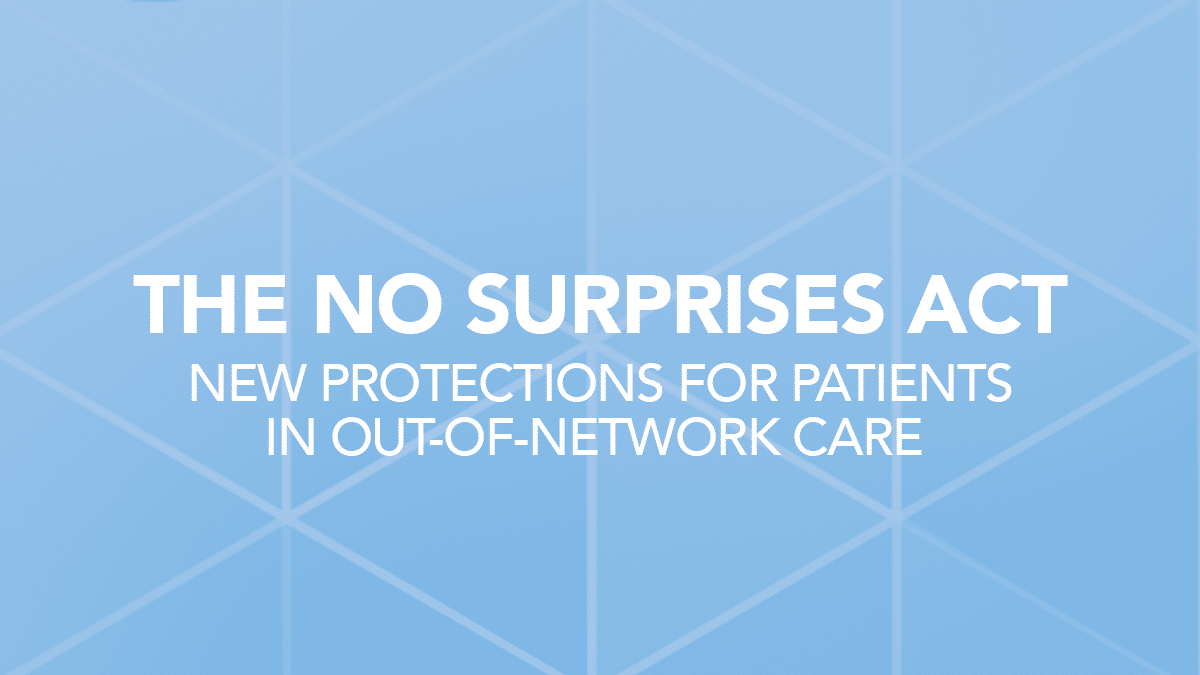The No Surprises Act brings new protections for patients in out-of-network care. Read on below to learn more.
You are taking that ski vacation in Jackson Hole, Wyoming that you have been planning for all year. Well, things did not go exactly as planned. You ended up in the ER in Jackson Hole after fracturing your ankle on the ski slope, requiring surgery. Thirty days later, back home, you receive a bill for thousands of dollars for the medical services received because the services were performed by an out-of-network provider.
2022 brings new protections in such a scenario. Patients with private health insurance will no longer be blindsided by “surprise” medical bills when they unknowingly receive out-of-network care. The No Surprises Act, passed by Congress in 2020 as part of the coronavirus relief package, is now in effect as of January 1, 2022.
It generally forbids insurers from passing along bills from doctors and hospitals that are not covered under a patient’s plan. Such bills have often left patients to pay hundreds to tens of thousands of dollars in outstanding fees. Instead, the new law requires health care providers and insurers to work out a deal between themselves.
If you are having a medical emergency and go to an urgent care center or emergency room, you cannot be charged more than the cost-sharing you are accustomed to for in-network services. You will still be responsible for things like a deductible or a co-payment. But once patients make that normal payment, they should expect no more bills.
However, the new law does not prevent ambulance companies from billing you directly for their services if they travel on roads. It does offer protection against surprise bills from air ambulances.
Additionally, the new law establishes an arbitration system for the provider and the health insurer to determine a fair payment. To learn more about the No Surprises Act, click here.


